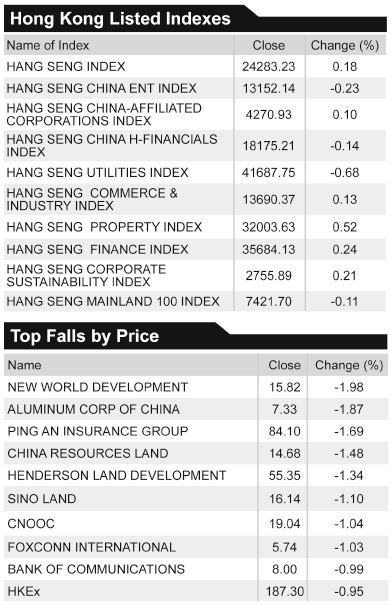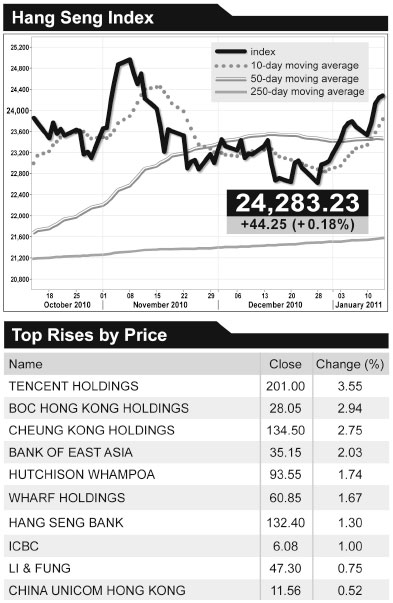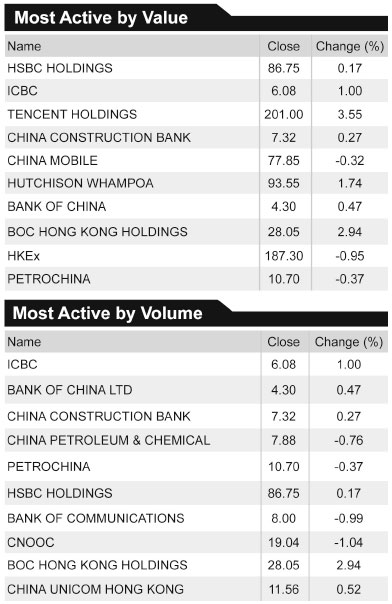New companies ordinance to protect small investors
Updated: 2011-01-15 07:48
By Oswald Chen(HK Edition)
|
|||||||||
|
An investor reads notices in front of a stock price board. The government said the new Companies Ordinance balances the interests of retail investors with major shareholders. Mark Ralston / AFP |
Govt says 'headcount test' to be retained
The Hong Kong government said Friday it expects to implement a new Companies Ordinance (CO) in 2014, which it says will include new features to enhance protection for small investors.
The Companies Bill (CB) was gazetted Friday after being approved by the Executive Council Wednesday. The CB will be introduced into the Legislative Council (LegCo) for its first and second readings on January 26.
One of the most notable features of the CB is that it retains the "headcount test" at a company's annual general meeting (AGM) or extraordinary general meeting (EGM). However, according to Deputy General Secretary for Financial Services and the Treasury John Leung, courts still are at their own discretion to dispense with the test if they deem the circumstances to be appropriate.
"The headcount test clause can balance the interests between retail investors and major shareholders," said Leung, "and since major financial jurisdictions such as the UK, Australia, Singapore and Bermuda still retain the headcount test, we propose to strike a balance by retaining the clause while adding an element of court discretion."
However, Leung denied the decision had anything to do with the highly controversial decision in April 2009 in which the Court of Appeal blocked a $2 billion plan to privatize the city's biggest phone company, PCCW. The move dealt a stunning blow to the company's chairman, Richard Li, the son of billionaire tycoon Li Ka-shing.
The controversy surrounding the privatization plan regarded both the price offered to shareholders and allegations that a shareholder meeting in February 2009 where the deal was approved had been manipulated via a process known as "share splitting".
The Securities and Futures Commission (SFC) undertook an investigation into the vote and later argued in court that PCCW shares had been given to some investors to increase support for the takeover proposal.
Hong Kong law contains an unusual provision under which the number of individual shareholders - rather than the number of shares - is crucial in approving such votes, meaning that several hundred new shareholders could have swayed the vote. Richard Li had argued that share splitting in Hong Kong was legal.
Li said at the time that he was considering taking the case to the Court of Final Appeal, but to date he has yet to do so. Nevertheless, the case raised awareness of share splitting at AGMs and EGMs, a process which could damage the interests of small shareholders.
Some, such as shareholder activist David Webb - who played an important role in bringing the allegations of vote-rigging in the PCCW case to the SFC - have argued that the headcount test should be completely abolished in the voting process at AGMs, saying that it deviates from the "one share one vote" principle.
The new proposal doesn't entirely abolish it, but the "headcount test" does leave the door open for intervention if needed.
"Maintaining the headcount test clause is vital for better small shareholder interest protection, as institutional investors and major shareholders could align themselves in a way that could hurt retail shareholders' interests," said Raymond Chan, an associate professor at the Hong Kong Baptist University's Department of Accountancy and Law.
However, Chan admitted that the government's proposal could cause business uncertainty risks for listed companies.
The government also proposed in the CB that the disclosure of more personal information on company directors, as well as their skill specifications and qualifications should be strengthened to further the cause of corporate governance.
"Hong Kong is lagging in the standards of corporate governance compared with other developed markets. Though the specification proposal may increase the legal liability of company directors, maintaining the usual lax corporate governance standards will nevertheless crimp the future business attractiveness of the city," Chan cautioned.
China Daily



(HK Edition 01/15/2011 page3)
